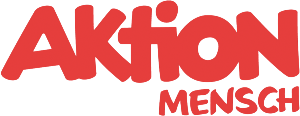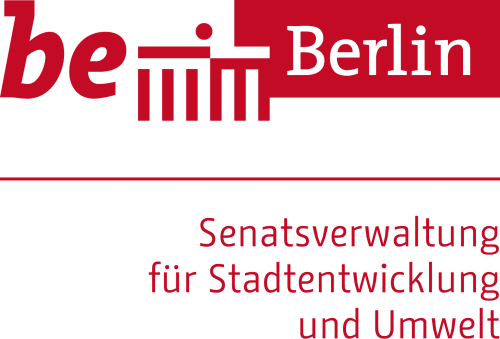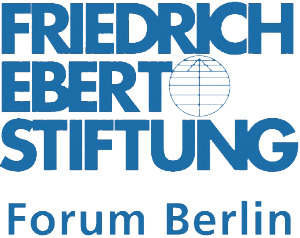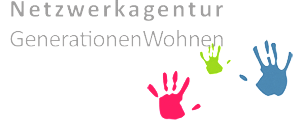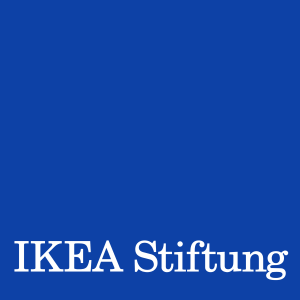Project index
Social-Ecological Cooperative Housing – Open Access eBook
SOCIAL-ECOLOGICAL COOPERATIVE HOUSING
Community-based, transformative building and living
From land speculation and exploding rents to climate change and social inequality, we find ourselves in an age of overlapping crises. As such, it is more important than ever that we rethink the ways we live and share, as well as our systems of land and property ownership.
The Network of Cities for Collaborative Housing (NETCO)
Municipal Policy Mechanisms for Housing Commons_____
Europe for Citizens - Network of Towns - EU Project_____
______________________________________________________________________________________________________________________
Creating an EU-wide network of cities who are actively increasing their social and affordable housing stock through supporting collective self-organised housing forms, such as resident-led cooperatives and community land trusts.
______________________________________________________________________________________________________________________
id22 is coordinating research, communications and documentation, looking into Collaborative Housing Best Practices in many European Cities.
______________________________________________________________________________________________________________________
The Network of Cities for Collaborative Housing (NETCO) ran from May 2022 to April 2024 and aimed, in the short term, to mobilize cities, local practitioners, and individuals interested in the collaborative housing model to exchange ideas and address social inclusion and participation through a practical-oriented approach. In the mid-term, this Network sought to open forums and channels among collaborative housing initiatives and stakeholders, including local public bodies, to promote policy changes and instruments that facilitate the success of these initiatives. This was to be based on the compilation of best practices and recommendations collected throughout the project. Finally, the long-term effect of the project was to contribute to the establishment and improvement of collaborative housing programs at the local level, the scaling up of these initiatives, and the expansion of the Network to include other cities and policy levels. NETCO was integrated by ten EU and two non-EU countries, through 16 partners. The participating cities included: Spain (Barcelona, serving as the coordinator), Germany (Id22 – Berlin and Dresden), Portugal (Lisbon), Greece (Thessaloniki), The Netherlands (Amsterdam and Eindhoven), France (Grand Lyon and Strasbourg), Croatia (Zagreb), Romania (Cluj), Belgium (Brussels), Slovenia (Ljubljana), Italy (Torino and Bologna), United Kingdom and Norway (Oslo). This diverse composition provided a balanced representation of cities from northern, southern, central, and eastern Europe, each with distinct welfare state systems and local policy schemes. The project organized exchanges and discussions on key policies necessary for the success of collaborative housing, maintaining a strong practical orientation to align the knowledge and interests of city practitioners, civil society individuals, and organizations. Exchange on the implementation of collaborative housing within NETCO was done through a series of online and in person events:
____________________________________________________________________________________________
Event 1 (Online, 2022): Hosted by the Municipality of Barcelona, this webinar focused on collaborative housing as a key local policy during COVID-19.
Event 2 (Bologna, April 2023): European conference on advancing collaborative housing models at the local level, addressing legal frameworks and challenges.
Event 3 (Barcelona, June 2023): European conference on making local innovation sustainable, emphasizing the role of public resources in collaborative housing.
Event 4 (Berlin, October 2023): European conference on funding collaborative housing schemes, exploring challenges and prospects.
Event 5 (Brussels, January 2024): European conference on combating discrimination and residential exclusion through collaborative housing.
Event 6 (Online, March-April 2024): Hosted by Barcelona, this webinar provided recommendations and next steps for collaborative housing.

____________________________________________________________________________________________
Visit our website and read reports from each of the transnational NETCO events:
____________________________________________________________________________________________
https://netcoproject.org/
____________________________________________________________________________________________
Read the NETCO report 2024 with Policy Recommendations:
____________________________________________________________________________________________
https://netcoproject.org/#download-our-report
____________________________________________________________________________________________
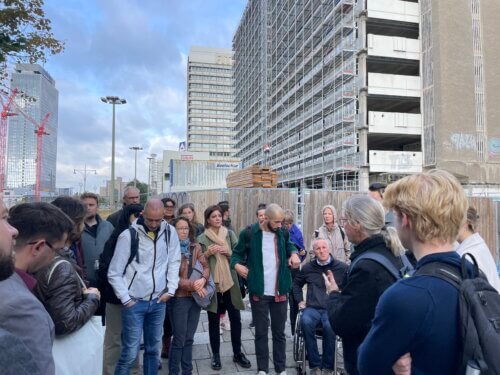
Partners
Creative Sustainability Tours & Workshops
initiatives for renter's rights, social ecology, justice and resistance.
With respect to the emerging crises we organize tours and presentations. We are happy to work with you to plan a discussion or a tour, meeting your specific interests and needs.
For Berlin residents and visitors, experts, students, activists as well as youth. Tours offered in English and German, other languages by request. Group tours throughout the year. Customized for your specific interests. Workshops and programs from 3 hours to 3 days. Cooperative housing, community gardens, ecological architecture, local economy, inclusion and accessibility, cultural and artistic experiments.
Our Creative Accessibility Tours are an opportunity for people who have not (yet) experienced physical handicaps to find out what accessibility and barriers really mean. School classes, student groups, as well as architects, city planners and companies can benefit from this. The tours are combined with a variety of educational modules such as „Creative Quests“, which challenge participants to accomplish different tasks in the city. Discussions with experts offer an opportunity to exchange findings and reflect on experiences.
With our Refugees Welcome Tours we visit inclusive and participatory Do-It-Yourself and Do-It-Together projects related to urban development, community living and working as well as local initiatives, urban gardening projects and cultural spaces in Berlin districts Kreuzberg, Mitte and Neukölln. We explore this fascinating urban landscape and learn about projects that are contributing to quality of life in our city. The aim of our City Tours is to help people who are new in Berlin get to know their neighborhood, become active users of the cultural spaces or even get actively involved in the local initiatives.
Experience sustainability as a visible part of our daily lives!
CoHousing Inclusive – Book & Exhibition
The book and the exhibition contain critical reviews of model projects representing a colorful, European movement, complemented with photos and drawings. Short texts argue how political and financial conditions can be improved to better realize collaborative housing. Finally, a range of voices offer unconventional and promising strategies.
CoHousing | Berlin
CoHousing | Berlin vernetzt be- und entstehende Wohnprojekte und Projektinitiativen, professionelle Akteure wie Planende, Projektentwickler*innen und Moderator*innen, Banken und Stiftungen sowie Genossenschaften und Hausverwaltungen. Neben der Vernetzung der Community wird auf der Plattform das Konzept CoHousing in all seinen Facetten vorgestellt. Auf CoHousing | Berlin finden sich deshalb auch viele spannende Hintergrundinfos zu aktuellen Entwicklungslinien und Trends sowie Veranstaltungstermine. Darüber hinaus werden individuell zugeschnittene Beratungen für Kommunen oder andere Stakeholder, die Interesse am Aufbau von CoHousing Projekte haben, angeboten.
Press
- 10/08/2015
- Berliner Morgenpost
- “CoHousing” – Eine eigene Wohnung und WG-Leben zugleich
- 01/04/2015
- Berliner Mieterverein Magazin
- Gute Gründe für die Wohngemeinschaft Zusammen geht mehr
- 01/08/2015
- faz.net
- In welchen Häusern wollen wir in Zukunft wohnen?
- 26/06/2015
- Der Tagesspiegel
- Ja, wo leben sie denn?
- 21/10/2014
- Bauwelt Ausgabe 39.2014
- Spreefeld
Spreeacker
A Spree Public Shore Path is being developed, around which many forms of urban gardening can be discovered. The first plots with native fruit trees have long since been planted. A model project for productive and regenerative landscapes has been created in public space: a Food Forest. This brings together practices of permaculture and edible landscaping with nature’s way of developing forests.
Der Spreeacker in Berlin Mitte liegt im Sanierungsgebiet Nördliche Luisenstadt und ist ein für alle offener, gestaltbarer und sich immer in Bewegung befindlicher urbaner Raum. Zur Zeit arbeiten wir an folgenden Projekten:
// essbare Landschaften inklusive Hochbeeten: Gemüse, Kräuter, Obst, etc.
// Ausbau und Beteiligung am öffentlichen Workshopverfahren des Uferwegs zwischen der Michaelbrücke und der Schillingbrücke
// Nutzung des Ufers und der Umgebung für Veranstaltungen und Bildungsangebote
Im Vordergrund stehen die Besonderheiten des Ortes und damit der Wunsch, sie zu erhalten und öffentlich zugänglich zu lassen: das Wasser, der Strand, das alte Bootshaus und seine Terrasse.
Alle Projekte verfolgen interdisziplinäre Ziele der Bildungsarbeit und der nachhaltigen Stadtentwicklung in ökologischen, ökonomischen und sozialen Bereichen.
Es werden Angebote geschaffen, die Aspekte wie Artenvielfalt, Vermeidung von Bodenversiegelung und die lokale Vernetzung mit Anwohnern vereinen.
Koordiniert werden die Aktivitäten seit 2014 vom neu gegründeten Verein Spreeacker e.V. mit Beteiligung der Nachbarschaft. Gemeinsam mit den Nachbarinitiativen vor Ort wie der Spreefeld-Genossenschaft, dem Bürgerverein Nördliche Luisenstadt sowie dem Teepee Land und Mörchenpark erarbeiten wir Ideen für eine nachhaltige, kooperative und partizipative Stadtentwicklung. Über Neuigkeiten und Veranstaltungen informieren wir auf dieser Webseite und auf Facebook.
Past projects
Kollektives Lernen / Collective Learning
Kollektives Lernen ist ein dezentrales, selbstorganisiertes Programm aus Gesprächen, Workshops, Spaziergängen, Gemeinschaftsessen und Filmabenden. In Berliner Freiräumen wollen wir Programme zu einer sozial und ökologisch gerechten Stadt organisieren und unterstützen. Unsere Vision ist ein dezentrales und selbstorganisiertes Lernnetzwerk aus einer Vielzahl von Menschen, Gruppen und Orten, die trotz aller Unterschiede die Notwendigkeit zu einem schnellen und tiefgreifenden Wandel erkennen und sich praktisch für diesen engagieren.
Diese Akademie des Wandels wird von unten initiiert, funktioniert ohne Zugangsbeschränkungen und bildet ein Netz aus Lern- und Teilhabeangeboten. Der Schwerpunkt liegt dabei auf den Erfahrungen und Kompetenzen des konkreten Mitgestaltens in Kiezen, Nachbarschaften und Freiräumen. Die Formate sind für alle Interessierten offen und in den Alltagszusammenhang der Menschen eingebettet. Ziel ist es, vor dem Hintergund der globalen ökologischen Krise lokale Handlungsmöglichkeiten in einzelnen Freiräumen, Communities und Nachbarschaften zu stärken und diese miteinander zu verbinden.
„Kollektives Lernen“ heisst für uns Wissen dazu austauschen, wie wir gemeinschaftlich zu einer sozial und ökologisch gerechteren Stadt sowie ihrer Beziehung zum ländlichen Raum beitragen können. Wir gehen vor dem Hintergrund der globalen ökologischen Krise davon aus, dass der notwendige Wandel unsere ganze Lebens- und Wirtschaftsweise umfassen muss, um die Zerstörung der Grundlagen des Lebens auf diesem Planeten zumindest abzubremsen. Wir setzen dabei auf der lokalen Ebene an, in unserem unmittelbaren Lebensumfeld, in unseren Kiezen und Nachbarschaften, in dem die Auswirkungen des eigenen und gemeinschaftlichen Tuns unmittelbar erfahrbar sind. Wir tun dies im Wissen darum, dass der Wunsch nach positiven Veränderungen und nach dem Erhalt der natürlichen Grundlagen unseres Lebens von vielen Menschen auf der ganzen Welt geteilt wird. Mit ihnen handeln wir solidarisch.
Lernen ist für uns ein Gemeingut ohne Zugangsbeschränkungen und nicht auf Universität oder Schule beschränkt, nicht auf Karrieren und Diplome. Kollektives Lernen heisst für uns, sich gemeinsam konkretes Wissen anzueignen, um die Welt um uns herum zu verändern: Handlungswissen aus Freiräumen wie urbanen Gärten, Selbstbau- oder Repair-Initiativen, Gemeinschaftsräumen und Stadtteilküchen. Wie können diese Erfahrungen dabei helfen, nicht nur kleine Oasen für Wenige zu schaffen, sondern zu einer Stadt beitragen, die weniger Müll und Abgase produziert, Wohnraum und Bildung für alle gewährleistet, in der wir uns ohne Staus und Luftverschmutzung fortbewegen und eine Stadt für alle schaffen, für Neu- und Altberliner*innen, für Alt und Jung, für kommende Generationen, für menschliche und nicht-menschliche Bewohnerm, eine Stadt des Sorgetragens statt der Konkurrenz und des Profits. Eine Stadt im Einklang mit den natürlichen Grenzen des Planeten, die gleichzeitig eine Stadt des guten Lebens (buen vivir) ist.
C MIBA. Center for Metropolitan Innovations in Bratislava
Model Project involving an ecological and socially sustainable building renewal with the Stiftung (Foundation) Nová Cvernovka in Bratislava, Slovakia.
Partners also include the Fachhochschule Potsdam, and the DBU Deutsche Bundestiftung Umwelt.
Building Social Ecology
___________________________________________________________________________________________
Cities and buildings can be described through interacting, overlapping and mutually influencing patterns. Building social ecology shows a catalog of patterns from already realized “best practice” projects that illustrate processes and opportunities for action in European cities.
Stadtbodenstiftung / CLT (Community Land Trust)
The Stadtbodenstiftung is founding the first German CLT (Community Land Trust) in Berlin, with the support of id22, the Institute for Creative Sustainability. The Stadtbodenstiftung, civil society-led, is a local democratic, non-profit and common good property ownership form that removes speculation from land and property in order to develop and maintain sustainably affordable housing, as well as other social, cultural, environmental or commercial uses.
Stadtbodenstiftung
Über den Boden zur solidarischen Stadt
Sustainable Housing for Inclusive and Cohesive Cities (SHICC)
The Sustainable Housing for Inclusive and Cohesive Cities (SHICC) project worked to support the establishment of more successful Community Land Trusts (CLT) in cities across the North-West European (NWE) region. Over the intial three-year project, (Sept 2017 – Sept 2020) it invested in four existing CLTs in Brussels, Ghent, Lille and London to ‘prove the concept’, create a supportive local, regional and national policy, funding and regulatory environment for CLTs and build a movement across the region.
_________________________________________________________________________________________________
During the capitalisation of the initial project (Sept 2020 – Sept 2021) the project supported an additional four pioneers based in the Netherlands, (Berlin) Germany, Scotland and Ireland, to support the work of creating new CLTs, and further strengthen the four initial pilot projects.
Access All Areas
Das Bildungsprojekt “Access All Areas” besteht aus Stadtexkursionen (Erleben von Barrierefreiheit und Barrieren) und Diskussionen (Austauschen und Reflektieren) mit Workshops (Gestalterische Mitbestimmung). Die Länge der Veranstaltungen variiert je nach Modulkombination von drei Stunden bis zu mehreren Tagen.
Das Thema Inklusion werden wir den Teilnehmer*innen auf eine spielerische und unterhaltsame Art näher bringen und zeigen, dass gesellschaftliche Teilhabe ein Grundrecht eines jeden einzelnen ist und in einer nachhaltigen Stadt sowie in einer modernen Gesellschaft selbstverständlich sein sollte. Die Frage der Barrierefreiheit und die Herausforderung, die sie in unserer Stadt noch immer darstellt, wird durch unsere Vermittlungsmethode nicht nur abstrakt verhandelt, sondern intensiv erfahren. Durch den Austausch zwischen Teilnehmer*innen mit und ohne Behinderung werden Berührungsängste abgebaut und Impulse für ein nachhaltiges Miteinander gegeben.
City Tours for New Berliners
In 2016-2017, with our City Tours for New Berliners we visited inclusive and participatory Do-It-Yourself and Do-It-Together projects related to urban development, community living and working as well as local initiatives, urban gardening projects and cultural spaces in Berlin districts Kreuzberg, Mitte and Neukölln. We explore this fascinating urban landscape and learn about projects that are contributing to quality of life in our city. The aim of our City Tours is to help people who are new in Berlin get to know their neighborhood, become active users of the cultural spaces or even get actively involved in the local initiatives.
EXPERIMENTDAYS_relaunch
The EXPERIMENTDAYS is an annual event for CoHousing projects, including a diversity of self-organized and community-oriented housing. The EXPERIMENTDAYS were organized every year since 2003 by id22 to offer a place to learn about and make connections with cooperative and collaborative housing. The Housing Project Market brought together emerging housing initiatives and complemented this with discussions, workshops, and tours.
metropolis
living tomorrow
blickwechsel 09
Nine Urban Biotopes
excity europe
Bildungswerk Lokhalle
experimentcity
experimentcity was initiated in 2003 by id22: Institute for Creative Sustainability, emphasizing the development of a great diversity of cooperative, accessible, affordable and self-organized housing forms as an essential contribution to a culture of sustainable urban development.
experimentcity, through a networking of experts and activists, artists and creatives as well as researchers, administrators and business people – supports innovative urban and community development strategies – transforming rigid top-down approaches into direct democratic and participatory processes.
With project markets (EXPERIMENTDAYS), internet platforms (CoHousing Berlin), publications (CoHousing Cultures + CoHousing Inclusive) and events including workshops, project visits (Creative Sustainability Tours) and exhibitions, experimentcity communicates the potential of a culture of creative and participatory, sustainable urban development.
experimentcity europe has networked CoHousing activists and experts at the European level supporting the exchange and transfer of locally-based experiences and knowledge.
experimentcity SUPPORTS collaborative housing forms and diversity in urban neighborhoods as well as participative and sustainable (re)uses of vacant buildings and land. This offers urban pioneers and innovative housing and cultural projects a platform to publicize their ideas.
experimentcity DEMONSTRATES that creative and integrated uses of otherwise idle space with ecological, cultural and cooperative initiatives increases urban quality of life.
experimentcity CREATES public interest, mobilizes available resources in the civil society regionally and internationally and works with government, media and the business community in taking steps toward sustainable development.
experimentcity INITIATES an exchange of experiences, networking and cooperation and is a Model Project for the implementation of the Local Agenda 21, designed to communicate with people where they are: in a diversity of languages and spaces, locally and internationally.

































